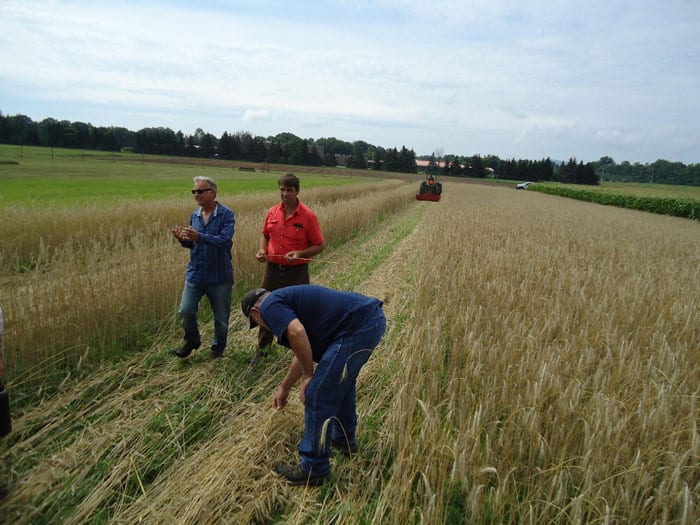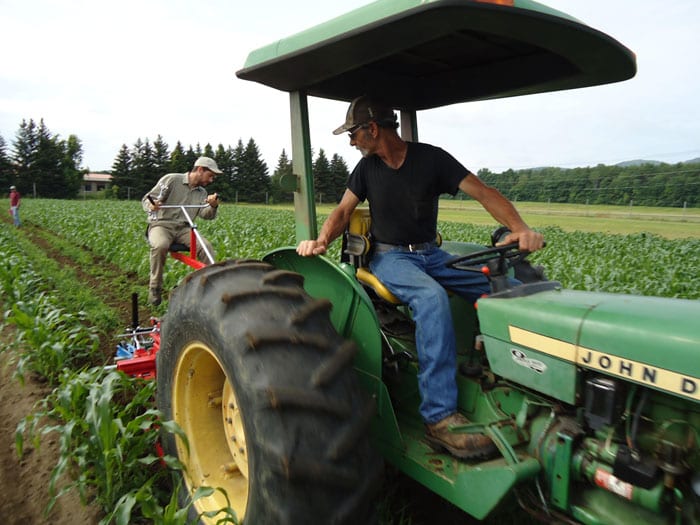
Jean-Paul Courtens (left) of Roxbury Farm discusses the finer points of using a roller crimper to terminate a cover crop and create a layer of mulch that suppresses weeds in preparation for planting a cash crop. Photo credit: Cedric Mason
By Cedric Mason
Nestled in upstate New York between the peaks of the Adirondack mountains and Lake Champlain, the Cornell University Willsboro Research Farm conducts research in support of the northern New York agricultural community, including many organic farms producing vegetables, grains and other certified organic crops.
On July 31, 71 farmers, educators, and researchers convened at the research farm in Willsboro, NY to learn about ways to reduce tillage in organic cropping systems, and improve their soils for the long term.
“Organic farmers in particular often rely on tillage as a way to control weeds while also satisfying the requirements of organic certification, but intense tillage can have detrimental impacts on soil health and the environment because of the way tillage destroys beneficial soil aggregates and accelerates the decomposition of organic matter,” said Cedric Mason, a Cornell University researcher working with New York Soil Health.
Equipment demonstrations at the July 31 event included a cultivator for controlling weeds in row crops and a roller-crimper that is used to terminate cover crops and create a mulch layer that suppresses weeds. Also on display were no-till seed drills, and low-impact soil preparation equipment.

Bryan Brown (left) of the NYS IPM program steers a cultivator pulled by a tractor, demonstrating how low-impact surface cultivation can be used to control weeds in organic systems. Photo credit: Cedric Mason
Researchers and farmers experienced in reduced tillage techniques conducted the demonstrations, providing details about their approach and tips for success, spurring discussion among the attendees.
After a locally-sourced lunch, the afternoon session began with a second round of talks and demonstrations covering the science behind weed germination and seed bank management strategies, zone-tillage in high residue, and a case-study of how one farmer reduced tillage and improved soil health on a farm in Vermont.
The event was organized by the Eastern NY Commercial Horticulture Program, CCE Essex County, and the Cornell Willsboro Research Farm; with funding from New York Soil Health, the Lake Champlain Basin Program, and the Northern NY Ag Development Program.